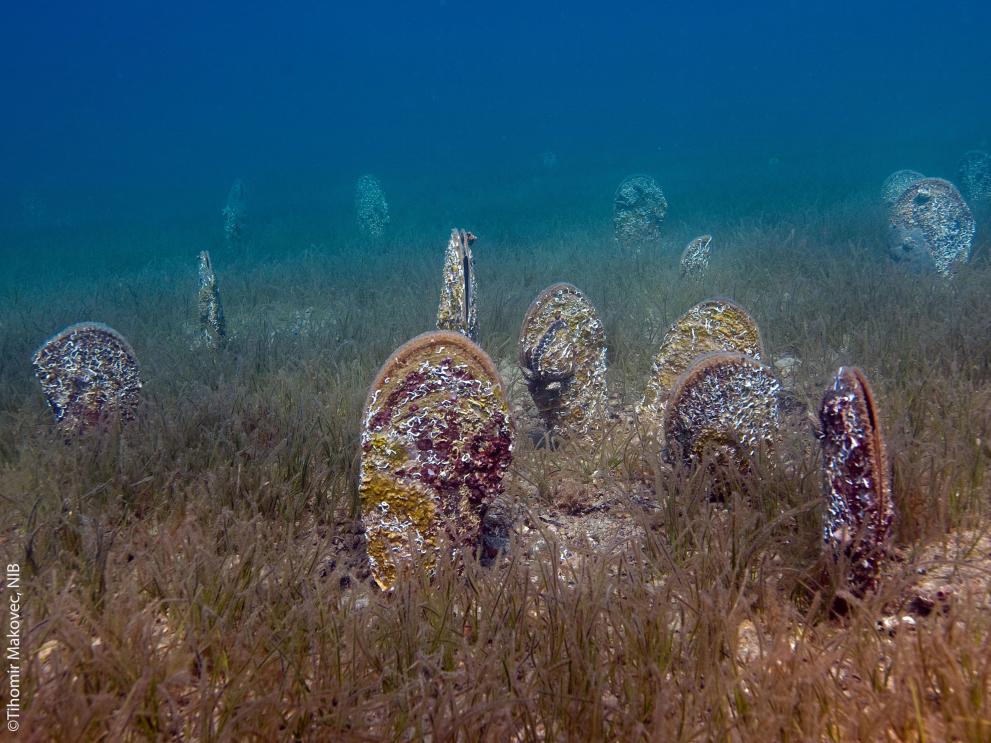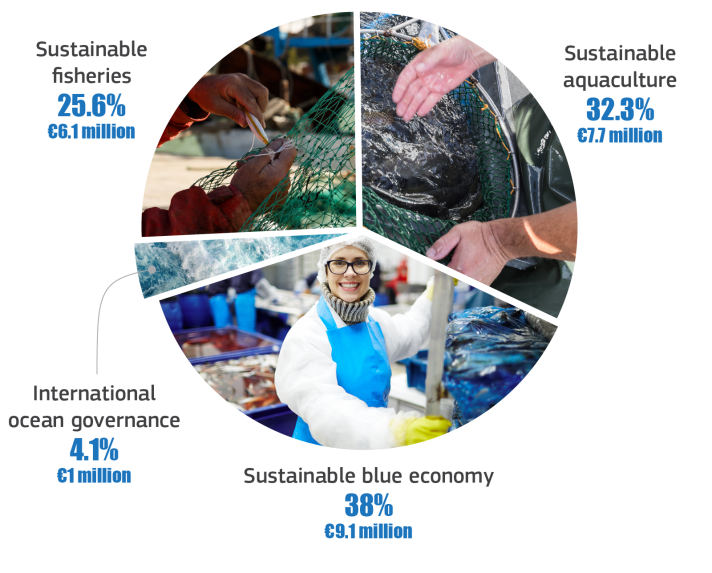
Following the adoption of the Partnership Agreement 2021-2027 with Slovenia, the Commission has adopted the European Maritime, Fisheries and Aquaculture Fund (EMFAF) programme for Slovenia, to help deliver the EU common fisheries policy (CFP) and EU policy priorities outlined in the European Green Deal. The total financial allocation for the Slovenian programme 2021-2027 is €34 million over the next six years, of which the EU contribution accounts for €24 million.
Commissioner for Environment, Oceans and Fisheries, Virginijus Sinkevičius, said:
I am glad to announce the adoption of the Slovenian EMFAF programme. The programme will help Slovenia reach sustainability and biodiversity goals, protect aquatic biodiversity, as well as promote low-carbon aquaculture and processing. It will also boost the green and digital transition, contribute to the vitality of coastal and inland fishing communities and strengthen sustainable sea and ocean management in the Adriatic.
Supported activities
25.6% of the programme’s allocation will be dedicated to sustainable fisheries, 32.3% will be invested in sustainable aquaculture, processing and marketing, 38% will be dedicated to sustainable blue economy and 4.1% will be invested in strengthening of international ocean governance. All supported activities will contribute to EU’s environmental and climate objectives.
The programme will support diverse range of activities, among which:
- Sustainable fisheries: temporary cessation of fishing activities to protect marine resources and contribute to fair standard of living for fishers; investments in improving fishing ports infrastructure to facilitate the implementation of the landing obligation; expanding coverage with marine protected areas to support environmental objectives; investments to support decarbonisation of the fishing industry, investments in gear selectivity to exclude the capture of very small fish and avoid unwanted catches; collection of marine litter; effective control and enforcement of CFP rules and comprehensive data collection activities to deliver policy objectives.
- Sustainable aquaculture, processing and marketing: investments in increasing sustainability, resilience, circular economy and adaptation to climate change; energy efficiency and decarbonisation in aquaculture and processing; strengthening competitiveness; fostering innovation and knowledge, as well as diversification of activities; creation of producer organisation and marketing.
- Sustainable blue economy: fostering social and economic activities related to blue economy by supporting coastal and inland fishing communities across Slovenia. This will be done via community-led local development strategies, a bottom-up approach to policy development that encourages local people to form local action groups and get involved. Smart Specialisation Strategies will be taken into account when implementing the approach.
- International ocean governance: investments in strengthening sustainable management in the Adriatic by improving knowledge on the state of marine environment; increasing the data quality and sharing via EMODnet; development of information exchange system for maritime surveillance and promoting coastguard cooperation.
Main expected outcomes until 2027
The Slovenian EMFAF programme will contribute to the EU horizontal priorities outlined in the European Green Deal, Farm to Fork and Biodiversity strategies.
The programme will support the resilience of the fisheries, aquaculture and processing sectors through financial support to diversify the production or by using compensation schemes to strengthen the blue economy sectors to resist future crisis. It will enhance knowledge, skills and capacity building of workers, help improve health and hygiene conditions and ensure energy efficiency, waste reduction and quality products. It will also support modernisation of fishery, aquaculture and processing facilities, creation of the first producer organisation and development of short supply chains. The development potential of small aquaculture farms and small-scale fisheries will be specifically targeted.
The green transition of the sector has a prominent place in the programme and investments will support shift to lower-carbon fuels and low-impact fishing techniques and gears as well as modernising fishing ports and developing circular economy to give value to seafood waste. Funding will be provided also for research and innovation into green technologies as well as activities to improve conservation status of biodiversity and habitats. Organic aquaculture, algae, recirculating systems and aquaculture providing environmental services will be supported too.
The digital transition of the Slovenian fisheries, aquaculture and processing sectors will be achieved via a wide range of innovative solutions from means of control and collection of fisheries data to new IT technologies applied to aquaculture and processing. It will lead to enhanced and modernised data management and fisheries monitoring technology, electronic traceability, use of new digital tools and improved digital skills of workers.
The financial support will also help manage and extend marine protected areas and collect marine litter. The programme will reinforce the environmental actions undertaken under the Slovenian prioritised action framework for Natura 2000: monitoring of marine and maritime habitats and species and promotion of scientific knowledge, in line with the EU’s Birds and Habitats Directives.
The EMFAF programme benefits from a good cooperation between the European Commission, national managing authority and local partners.
Background
The EMFAF runs from 2021 to 2027 and supports the CFP, the EU maritime policy and the EU agenda for international ocean governance. The fund helps achieve sustainable fisheries and conserve marine biological resources.
Article 8 of the EMFAF Regulation (EU) 2021/1139 requires Member States to produce a national implementation programme for the EMFAF. This programme focuses on EU priorities, laying down the strategy and investment priorities, including the indicative annual financial allocation for each priority. The programme is subject to approval by the European Commission.
More information
Details
- Publication date
- 2 December 2022
- Author
- Directorate-General for Maritime Affairs and Fisheries

